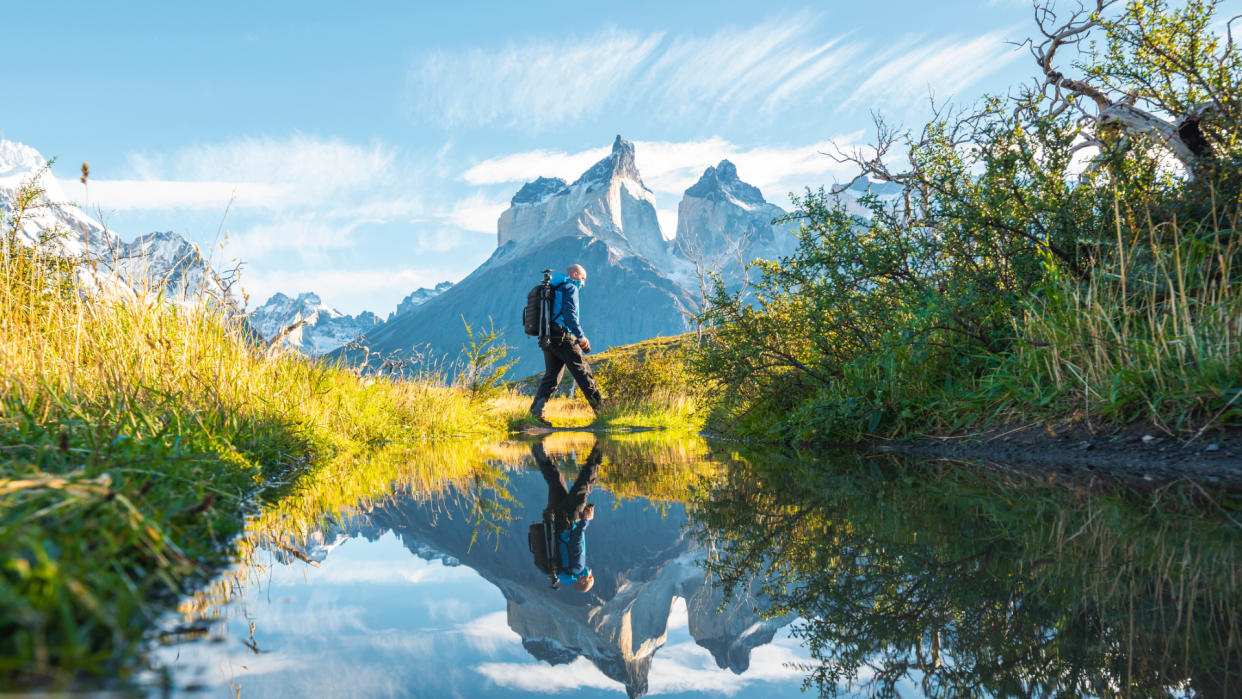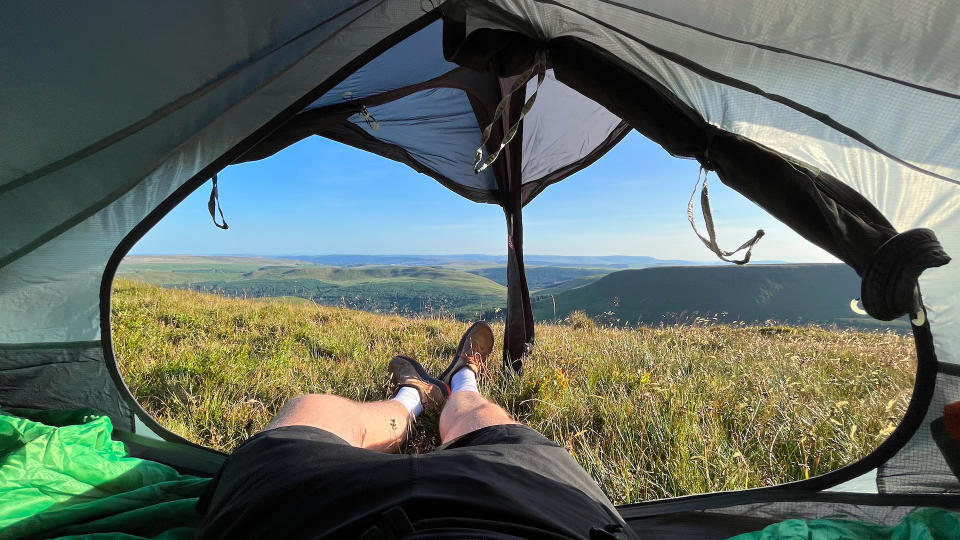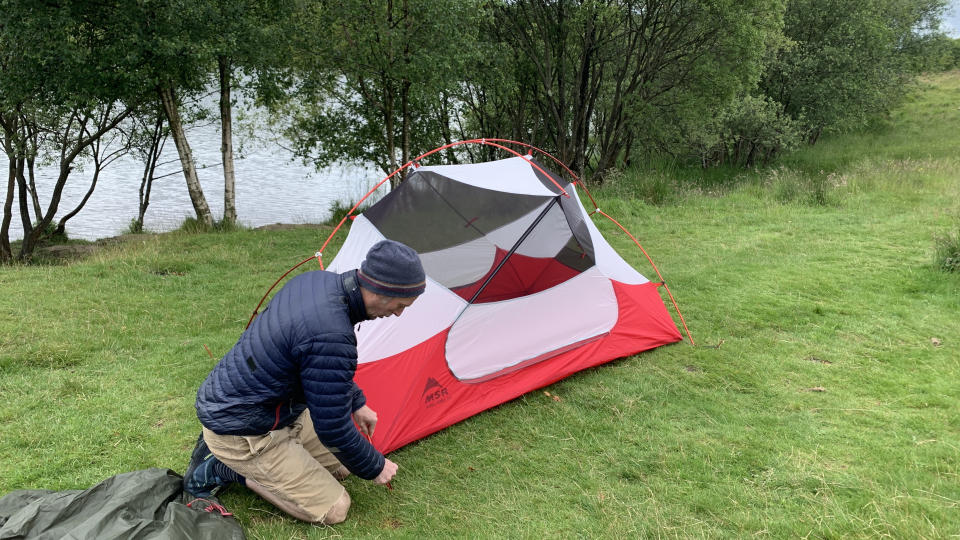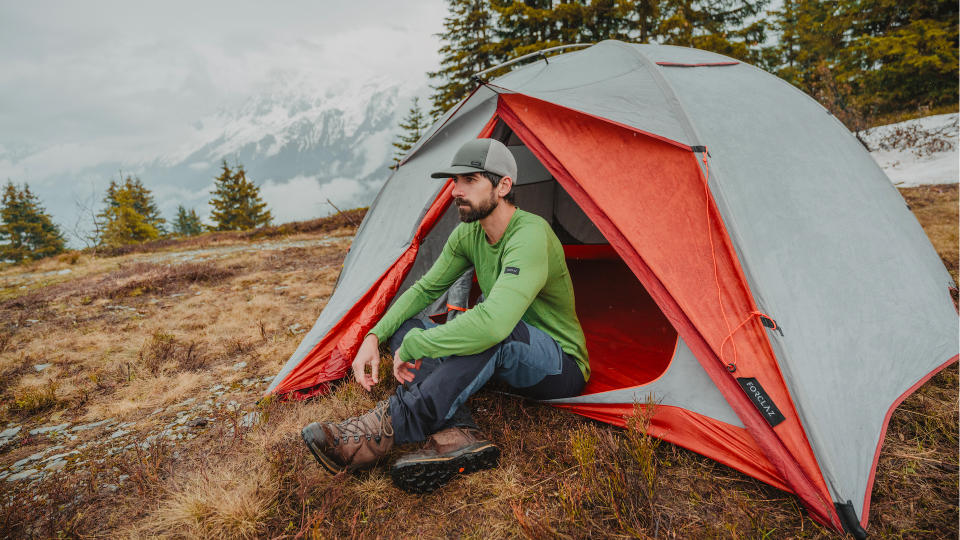How to choose a tent for thru-hiking

Choosing a camping tent for thru-hiking is not totally different to browsing real estate. After all, the shelter you choose is going to be your home for the next few weeks or even months. Even if you want to eschew the luxuries of modern life and are ready to embrace the minimalism of life in the wild, you still need a protective space to rest at night after those long days on your feet.
I’ve definitely made the mistake of going too minimal on a thru-hike, and while I enjoyed having a tent that didn’t take up too much space in my pack, I regretted it when the rain (or midges) came and I had to hid in my coffin-sized shelter for hours on end.
You might think that you have to bring a one-person tent on a thru-hike, but there are actually several options even for a solo hiker, whether you’re braving six months on the Appalachian Trail or a week on the West Highland Way. We’ll explain more below, but no matter which temporary home you choose, you’ll want to consider the following five factors before you buy.

Size
Your first thought when selecting a tent for thru-hiking is probably that it needs to be as small as possible. Small tents take up less space in your backpack, leaving more space for your food and extra clothes, in addition to all the essentials like your sleeping bag, pad and camping stove.
However, tread with caution here. When you’re choosing a tent that’s going to be your home for weeks or months, there’s a good chance you’re going to spend a lot of time in it, especially if the weather isn’t great. You can definitely go for a bivy sack and keep everything ultra light, but be aware you might really want the extra room to sit up, move around on those long rainy stretches and of course, stash your backpack.
A two-person tent for one person might seem excessive, but it’s worth eyeing up the pack size and weight differential between them and the next size down. My MSR Hubba Hubba NX two-person is super roomy but every bit as light as my North Face Stormbreak 1 One-Person Camping Tent and packs down to a near-identical size, so it would be crazy for me not to enjoy the extra room.

Weight
Clearly, when you’re carrying everything you need to survive on your own back for weeks or months at a time, you’re going to want to find something that doesn’t add a lot of weight to your pack. As you now know, however, you don’t necessarily want to automatically go for the lightest tent, as you may want more room.
For a long walk, most savvy backpackers try to keep their base load (that’s everything excluding food, water and fuel) down to between 10 and 15 lbs. It would be smart to start by weighing your backpack, sleeping pad and bag, stove plus all the other extras like clothing, headlamp and water filter, then see how much room you have left. If that all adds up to 10 lbs, then you’ve still got five lbs to play with.
If you’re worried about how heavy your pack is getting, read our article on how heavy is too heavy for a backpack to dispel any misconceptions.

Seasonality
Not all tents are built to withstand all weather conditions. Obviously, if your thru-hike is taking place within a single season, you just need to make sure yours matches the season you're hiking in, but on a long thru-hike, you’re likely to experience multiple seasons, especially if your trek has a lot of variations in altitude.
A good camping tent will usually be built to withstand spring, summer and fall, and since a long thru-hike might begin in summer and end in fall, that’s what you want. If your trek is likely to take you into winter, or high altitude, you might even consider a four-season tent, though these can get pricey. Expedition tents are really for severe winter camping, and you can learn more about them in our article on the difference between four-season and winter outdoor gear.
We’ve tested several four-season tents, but one that stands out as having more space yet still being lighter than many one-person tents is the MSR Access 2, which is suitable for backpacking.

Ease of use
Obviously, everyone wants a tent that just pops up with minimal effort, and if you’re hiking solo, you’ll definitely want to give it a practice run to make sure it can be erected by one person. When you’re thru-hiking, however, you have to pitch and take down your tent every night, unless there are shelters along the way, and you’re likely to be tired at night, so it’s extra important that it doesn’t add a lot of extra hassle.
We rated the Wild Country Coshee Micro V2 best for easy pitching in our guide to the best one-person tents, but the best approach is to go to the store and try pitching tents on your own before buying.

Durability
Taking months off work to go thru-hiking can be thrilling, but also daunting, and you probably want to keep your costs down. However, it’s not advised to scrimp on your tent.
A cheaper tent might be great for occasional camping, but for daily use over a long period of time, you want a robust, high quality tent that can hold up against the weather with a low profile, and is hardy enough to cope with constant pitching. The Robens Starlight 1 four-season tent stands strong in the wind and in general, dome tents are hardy.
You can extend the lifespan of your tent by taking care as you pitch it and pack it away. Carry an extra set of tent pegs and make sure you know how to perform tent repairs in the field.
